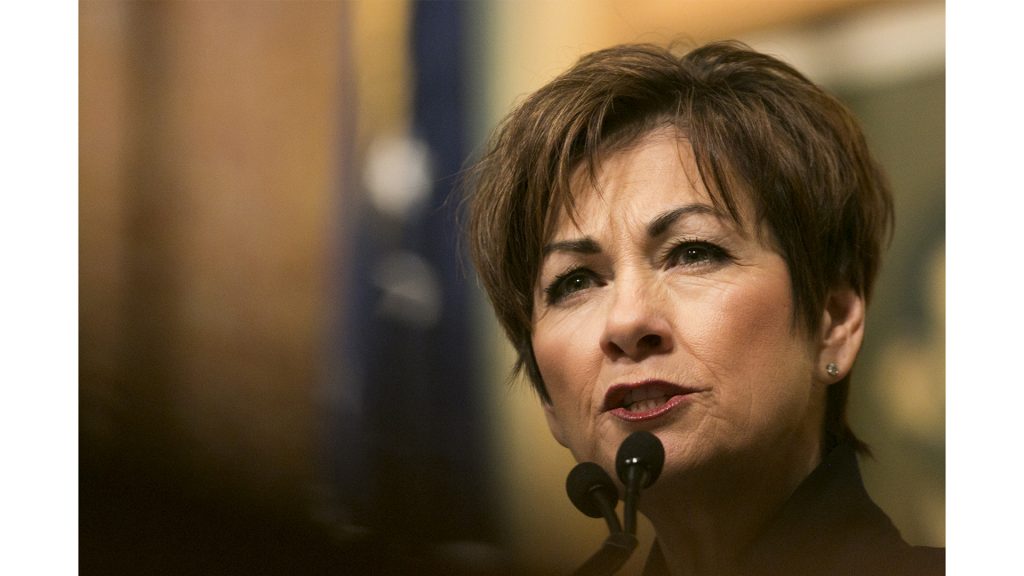Banerjee: Bipartisanship is important for enfranchising voters
Gov. Kim Reynolds’ attempts to enfranchise voters and restore voting rights to felons is a step in the right direction for Iowa bipartisanship, even if she was blocked by the Iowa Senate.
Iowa Gov. Kim Reynolds speaks during her first Condition of the State address in the Iowa State Capitol in Des Moines on Tuesday, Jan. 9, 2018.
April 10, 2019
Senate Republicans on April 4 struck down a proposed constitutional amendment that would have restored voting rights to former felons. The effort to redefine the rights that former felons have has been ongoing for some years, and it seems like the fight is only going to be continuing. Admirably, Republican Gov. Kim Reynolds has had an active role in attempting to pass this legislation.
Party Republicans restoring voting rights seems like a far shot considering conventional politics ascribed to the party, but a week earlier, Iowa House Republicans passed the proposed amendment by a landslide. Reynolds’ support for the bill is a crucial bipartisan effort to progress human rights — outside of party politics entirely.
Currently in Iowa, if people are convicted of felonies, their voter registrations are canceled. They may appeal and attempt to apply to restore their rights through the Governor’s Office, but otherwise, they lose the ability to participate in election processes.
RELATED: Iowa City police launch program to help locate wandering people
There are many, many reasons that a felony should not necessarily strip people of their ability to participate in one of the fundamental functions of a democratic state. For one, a felony does not differentiate between violent and nonviolent crime. A felony could be as serious as human-trafficking to — in some states such as Florida — possessing as much as 0.705 of an ounce of marijuana. In Iowa, there is no felony charge for possession, but other crimes, such as theft, could result in losing essential American rights.
This seems highly unethical; by maintaining this broad rule, it removes the purpose of rehabilitation and progress, forcing people who may be genuinely positive and good people in a society to lose their voice because of a mistake that might have been relatively inoffensive. According to an Iowa Poll, 64 percent of people polled agree that restoring voting rights is an important cause to Iowans. The wide support for Reynolds’ proposed plan and the dismissal of the Republican Senate seem to be at odds.
The support for expanding voter rights is clearly here in Iowa, and it marks an important movement toward bipartisan equality. Iowa, a normally red state that can often be close-minded when it comes to liberal or social movements, attempted to forefront an effort to improve conditions for Iowans, which is an admirable and crucial goal in the current political climate. We need to seek out progress on all fronts, especially in voting and democratic participation.
RELATED: Newby: Human trafficking is on the rise
Voting rights have been a major point of contention in recent politics with the alleged voter suppression that occurred in the midterm elections. Republicans received backlash concerning voter-ID laws that are connected to attempts to disenfranchise minority groups, such as a North Dakota law targeting Native Americans that passed in 2018. Some Iowa Republicans worked to increase voter accessibility and enfranchise those who have historically been targeted in anti-voting regulation.
While obviously there is a lot of work left to do when it comes to improving voting conditions and parties in America, Reynolds and other political party leaders’ attempt to push forward has been noticed. It is an important piece of bipartisanship that must continue in order to create tangible change.



















